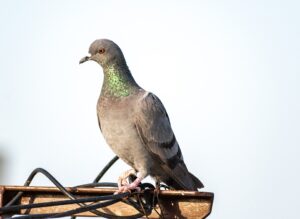When are squirrels most active inside homes?
Have you ever wondered when squirrels are most active inside homes? These furry creatures are known for their acrobatic skills and ability to find their way into attics, crawl spaces, and wall voids. As a wildlife control professional, I have encountered numerous cases where squirrels have become unwelcome house guests. Understanding their activity patterns can help homeowners deal with these intruders effectively. So, let’s delve into the fascinating world of squirrel behavior and discover when they are most active inside homes.
1. Seasonal activity
Squirrels are active throughout the year, but their behavior can vary depending on the season. During the spring and summer months, squirrels are often busy foraging for food, building nests, and raising their young. This is when they are most likely to venture inside homes in search of a safe and warm place to nest. However, their activity level inside homes tends to decrease during the hot summer months, as they prefer cooler areas such as trees and shaded spots.
2. Diurnal creatures
Squirrels are diurnal creatures, which means they are most active during the daytime. They have excellent vision and rely on natural light to navigate their surroundings. This is why you may hear scratching or scurrying noises coming from your attic or walls during daylight hours. Squirrels use this time to gather food, socialize, and explore their surroundings. However, it’s important to note that they can also be active during dawn and dusk, especially when they are in search of food or during mating season.
3. Mating season frenzy
Speaking of mating season, it can be a particularly active time for squirrels inside homes. The mating season typically occurs in late winter or early spring, and during this time, male squirrels become more aggressive and territorial. They will go to great lengths to find a suitable mate, including entering homes through small gaps or openings. If you hear loud scratching or running noises, especially during the early morning or late evening, it could be a sign that squirrels are looking for a mate inside your home.
4. Nesting behavior
Squirrels are notorious for their nesting behavior, and they can cause significant damage to your home while creating their cozy abode. They often seek out attics, crawl spaces, and wall voids to build their nests, which are made of twigs, leaves, and other materials they find in their surroundings. Nesting activity tends to peak during the spring and fall when squirrels are preparing for the arrival of their young or seeking shelter from colder weather. If you notice an increase in scratching or rustling noises during these seasons, it’s likely that squirrels are busy building their nests inside your home.
5. Food foraging frenzy
Squirrels are opportunistic eaters and will exploit any available food sources. While they primarily feed on nuts, seeds, fruits, and insects, they are also known to raid bird feeders and gardens. Inside homes, squirrels may target food stored in pantries or even gnaw on electrical wiring. Their food foraging activity can increase during times when natural food sources are scarce, such as late winter or early spring when food reserves from the previous season are depleted. If you hear persistent chewing or gnawing sounds, it’s a clear indication that squirrels have invaded your home in search of a meal.
In conclusion, understanding when squirrels are most active inside homes can help homeowners take appropriate action to prevent their intrusion. However, it’s important to remember that attempting to handle squirrel infestations on your own can be challenging and potentially dangerous. It’s always better to hire a professional wildlife control expert who has the knowledge, experience, and humane methods to solve the issue effectively. Don’t let these agile creatures disrupt your peace of mind – seek professional help and ensure a squirrel-free home.


























+ There are no comments
Add yours